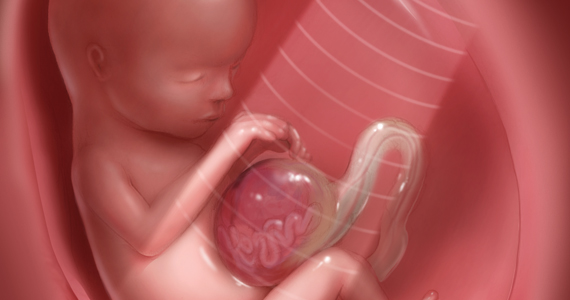
Fetal anomalies
Fetal anomalies, also known as congenital abnormalities or birth defects, are structural or functional abnormalities present in a baby at birth. These anomalies can range from mild to severe and may affect various parts of the body, including the heart, brain, spine, limbs, and internal organs. In Nagpur, a city renowned for its advanced healthcare infrastructure, parents have access to cutting-edge diagnostic tools, expert maternal-fetal medicine specialists, and comprehensive care for managing fetal anomalies. This guide provides an in-depth look at fetal anomalies, their causes, diagnosis, management, and the resources available in Nagpur for families navigating this challenging journey.
Types of Fetal Anomalies
1.Structural Anomalies
- Neural Tube Defects: Such as spina bifida, where the spine does not form properly.
- Congenital Heart Defects: Abnormalities in the heart’s structure.
- Cleft Lip and Palate: Gaps in the lip or roof of the mouth.
- Limb Abnormalities: Missing or underdeveloped limbs.
2.Chromosomal Anomalies
- Down Syndrome (Trisomy 21): An extra chromosome 21.
- Edward Syndrome (Trisomy 18): An extra chromosome 18.
- Patau Syndrome (Trisomy 13): An extra chromosome 13.
3.Functional Anomalies
- Metabolic Disorders: Such as phenylketonuria (PKU).
- Sensory Disorders: Such as congenital hearing loss or vision impairment.
Types of Fetal Anomalies
Genetic Factors
- Inherited Mutations: Passed down from parents.
- Spontaneous Mutations: Occurring during fetal development.
Environmental Factors
- Infections During Pregnancy: Such as rubella, cytomegalovirus, or Zika virus.
- Exposure to Harmful Substances: Including alcohol, tobacco, drugs, or certain medications.
- Radiation Exposure: High levels of radiation can harm fetal development.
Maternal Health Conditions
- Diabetes: Poorly controlled diabetes increases the risk of congenital anomalies.
- Obesity: Linked to neural tube defects and heart abnormalities.
- Advanced Maternal Age: Higher risk of chromosomal anomalies like Down syndrome.
Diagnosis of Fetal Anomalies in Nagpur
Prenatal Screening Tests
- Ultrasound: To measure nuchal translucency and assess the baby’s development.
- Blood Tests: To check for markers of chromosomal abnormalities.
- Quad Screen: A blood test to assess the risk of Down syndrome and neural tube defects.
- Anatomy Scan (Level II Ultrasound): A detailed ultrasound to examine the baby’s organs and structures.
Diagnostic Tests
- Chorionic Villus Sampling (CVS): Performed between 10-12 weeks to test for genetic disorders.
- Amniocentesis: Conducted between 15-20 weeks to analyze amniotic fluid for chromosomal abnormalities.
- Fetal MRI: Provides detailed images of the baby’s organs and structures, especially useful for brain and spinal cord anomalies.
Advanced Technologies in Nagpur
- 3D/4D Ultrasound: Offers detailed, real-time images of the baby.
- Non-Invasive Prenatal Testing (NIPT): A blood test that analyzes fetal DNA for chromosomal abnormalities.
Management and Treatment of Fetal Anomalies
The management of fetal anomalies depends on the type and severity of the condition. Nagpur’s healthcare facilities offer a multidisciplinary approach to ensure the best possible outcomes for both mother and baby.
During Pregnancy
- Counseling and Support: Genetic counselors and psychologists help parents understand the diagnosis and make informed decisions.
- Fetal Therapy: Some conditions, such as twin-to-twin transfusion syndrome, can be treated with minimally invasive procedures.
- Monitoring and Care: Regular check-ups to monitor the baby’s growth and development.
After Birth
- Neonatal Surgery: For conditions like congenital heart defects or cleft lip and palate.
- Rehabilitation: Physical therapy, occupational therapy, and speech therapy for babies with functional anomalies.
- Long-Term Care: Ongoing support from pediatricians, specialists, and support groups.
Support for Families
- Support Groups: Connect with other families facing similar challenges.
- Counseling Services: Professional counseling to help parents cope with stress and anxiety.
- Educational Resources: Workshops and seminars on fetal anomalies and their management.
Prevention of Fetal Anomalies
While not all fetal anomalies can be prevented, certain steps can reduce the risk:
- Preconception Care: Ensure optimal health before pregnancy.
- Prenatal Vitamins: Take folic acid to prevent neural tube defects.
- Avoid Harmful Substances: Stay away from alcohol, tobacco, and drugs.
- Regular Check-Ups: Monitor maternal and fetal health throughout pregnancy.Contact Us
Conclusion
Fetal anomalies are a complex and challenging aspect of pregnancy, but with early diagnosis, expert care, and a supportive environment, families in Nagpur can navigate this journey with confidence. The city’s advanced healthcare infrastructure, skilled specialists, and compassionate support systems ensure that parents and babies receive the best possible care. If you are expecting a baby and have concerns about fetal anomalies, consult a maternal-fetal medicine specialist in Nagpur to explore your options and plan for a healthy future.Schedule your Consultation with Dr. Ritesh Nawkhare
